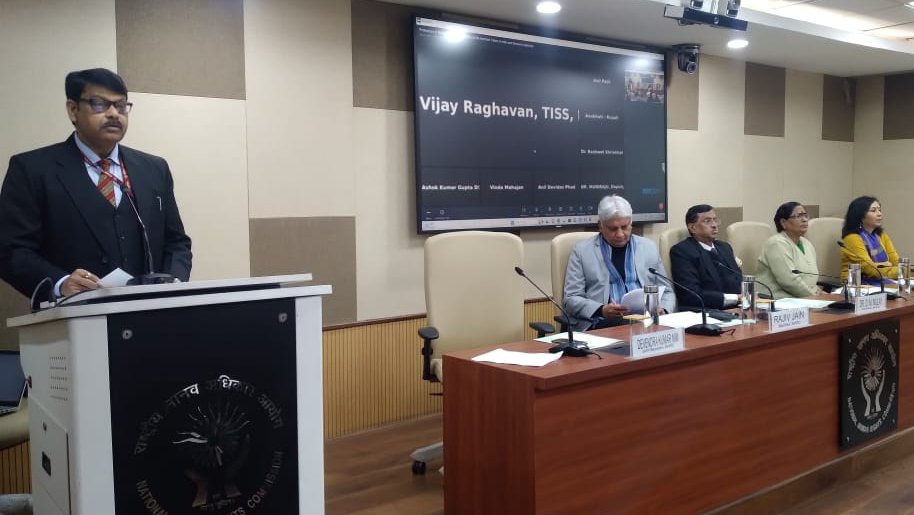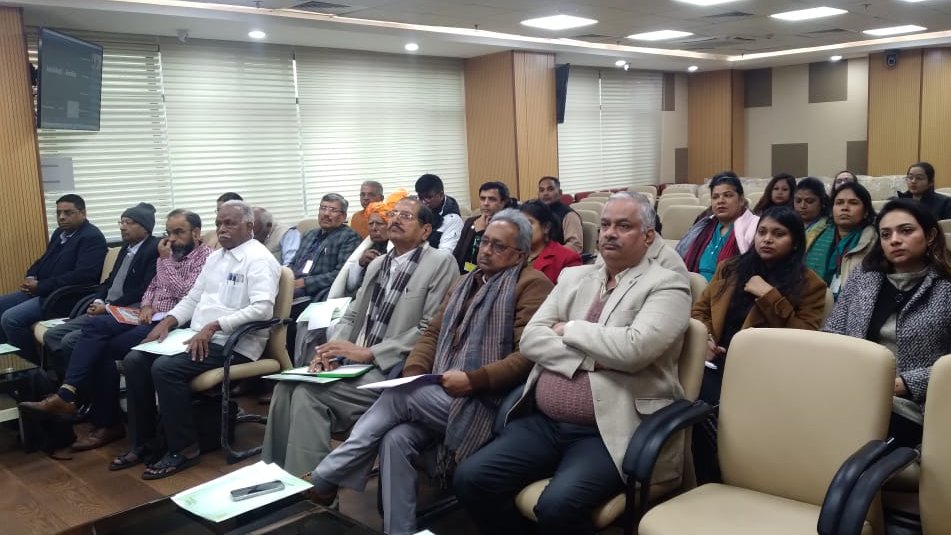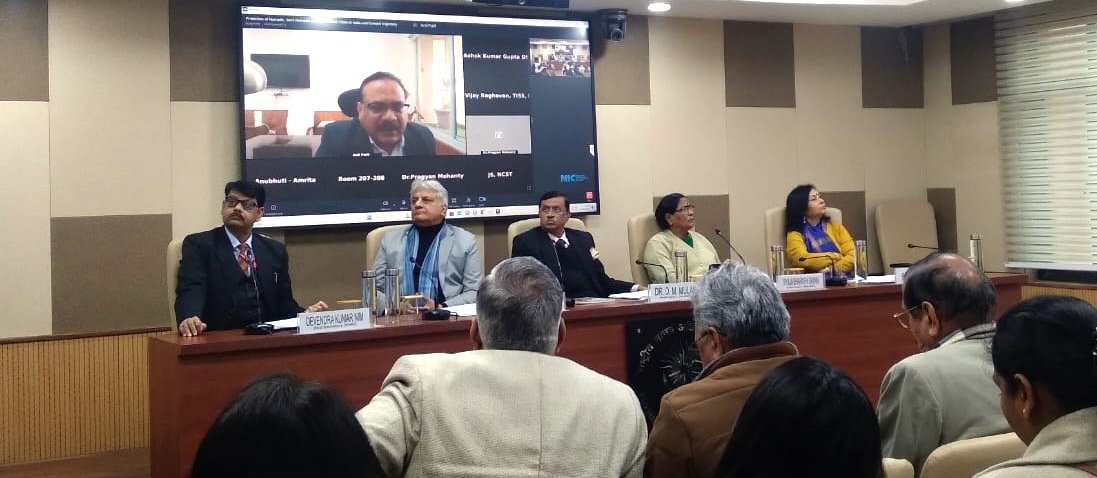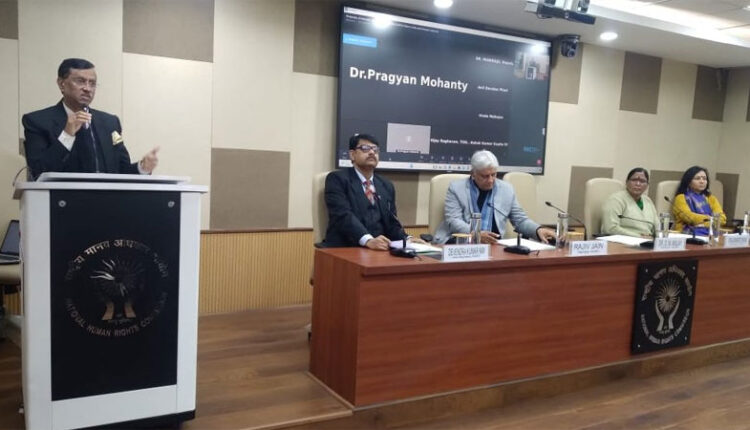NHRC organizes an open house discussion on the Protection of Nomadic, Semi Nomadic and De-Notified Tribes in India and forward trajectory
- The issues raised included the need for implementation of the Idate Commission report and the repeal of the Habitual Offenders Act, 1952
- The need for concerted efforts and further discussions on the problems of De-Notified communities emphasized streamlining the issues impacting their human rights
New Delhi (Kalinga Voice) : The National Human Rights Commission, NHRC, India organized an Open House Discussion on “Protection of Nomadic, Semi Nomadic and De-Notified Tribes (NTs, SNTs and DNTs) in India and forward trajectory” today on 19th January, 2024 at its premises. The NHRC, India Member, Dr. Dnyaneshwar M. Mulay inaugurated the discussion in the presence of the Members Shri Rajiv Jain, Smt Vijaya Bharati Sayani, Joint Secretaries Smt Anita Sinha and Devendra Kumar Nim.

Dr Mulay said that the right to life, equality, dignity and liberty are the four major pillars of human rights and every citizen, regardless of background, deserves an equal opportunity to thrive and contribute. He said that the De-Notified Tribes, Nomadic Tribes and Semi-Nomadic Tribes also require proper means of livelihood.

He said that the colonial mindset about the De-Notified Tribes having “criminal tendencies” needs to change to ensure their human rights are not violated. Proper documentation of their identities needs to be speeded up so that they get the benefits of welfare schemes and the basic needs are provided to them. He emphasized that the different stakeholders need concerted efforts and discussions to streamline the issues impacting their human rights.

Earlier, in his welcome address, NHRC Joint Secretary, Shri Devendra Kumar Nim said that the De-Notified, Nomadic and Semi-Nomadic Tribes remain the most neglected, marginalized and economically and socially deprived communities. He said that one of the most pressing issues for De-Notified communities is the lack of citizenship documents, which makes their identity invisible and causes hindrances in obtaining government benefits, constitutional and citizenship rights.

The discussions were divided into three technical themes as follows:
· To identify challenges faced by the NTs, SNTs and DNTs owing to the stigma imposed by the enactment of the Criminal Tribes Act, 1872 and later by the Habitual Offenders Act, 1952 and figure out a way to modify discriminatory provisions of the latter.
· To discern hurdles endured by the communities in availing basic facilities such as education, employment, health care, and legal documents, among others.
· To suggest measures to mitigate all the uncovered challenges, ensure representation of De-Notified tribes in parliament, government institutions and higher education, and determine a way to proceed, especially for women and children.

The issues highlighted by the speakers included the implementation of the Idate Commission report for setting up a permanent commission for these communities, repeal of the Habitual Offenders Act, 1952 and if not, the appointment of a representative of De-notified Tribe community with the nodal officers as stipulated in the Act, non-inclusion of DNTs/NTs/SNTs under the SC/ST/OBC and formulation of specific policies for the former, among many others.
In his concluding remarks, Dr. Mulay said that the Commission will further deliberate on the issues raised in the discussions as well as the various other inputs received on the problems and challenges being faced by the De-Notified tribal communities and then make necessary recommendations to the government to ameliorate the cause of their human rights.
In addition to the senior officers of the Commissions, the participants, among others, included senior officers of the Union Ministry of Social Justice and Empowerment Anthropological Survey of India, National Denotified & Nomadic Tribes Commission, Niti Ayog, De-Notified Nomadic Tribes Development Council, TISS, National Commission for Scheduled Tribes, academicians, experts and NGOs.

